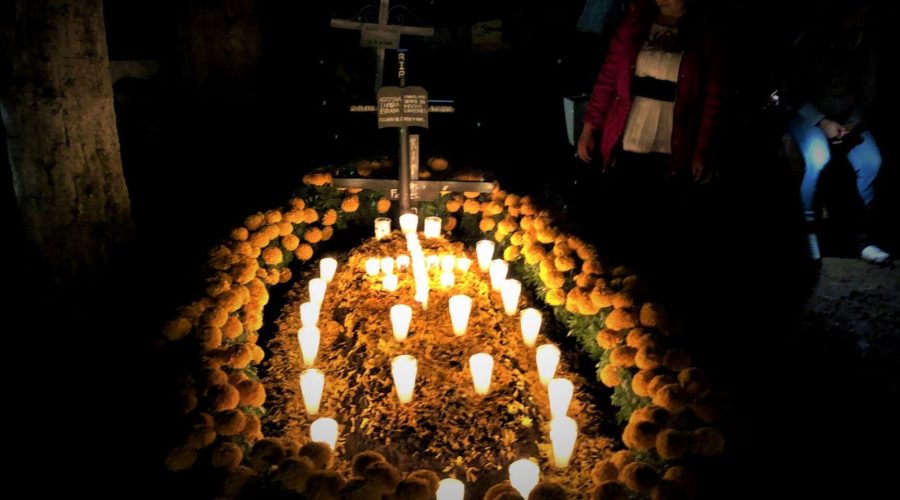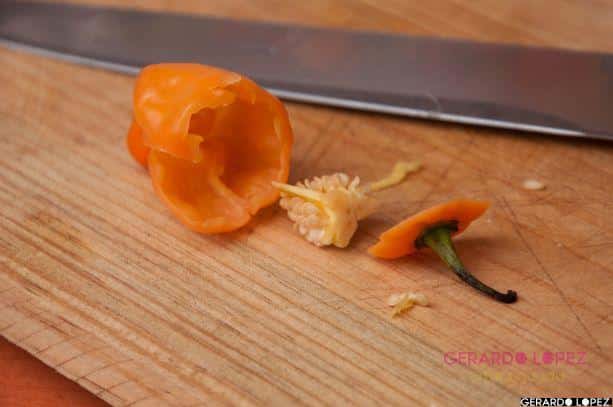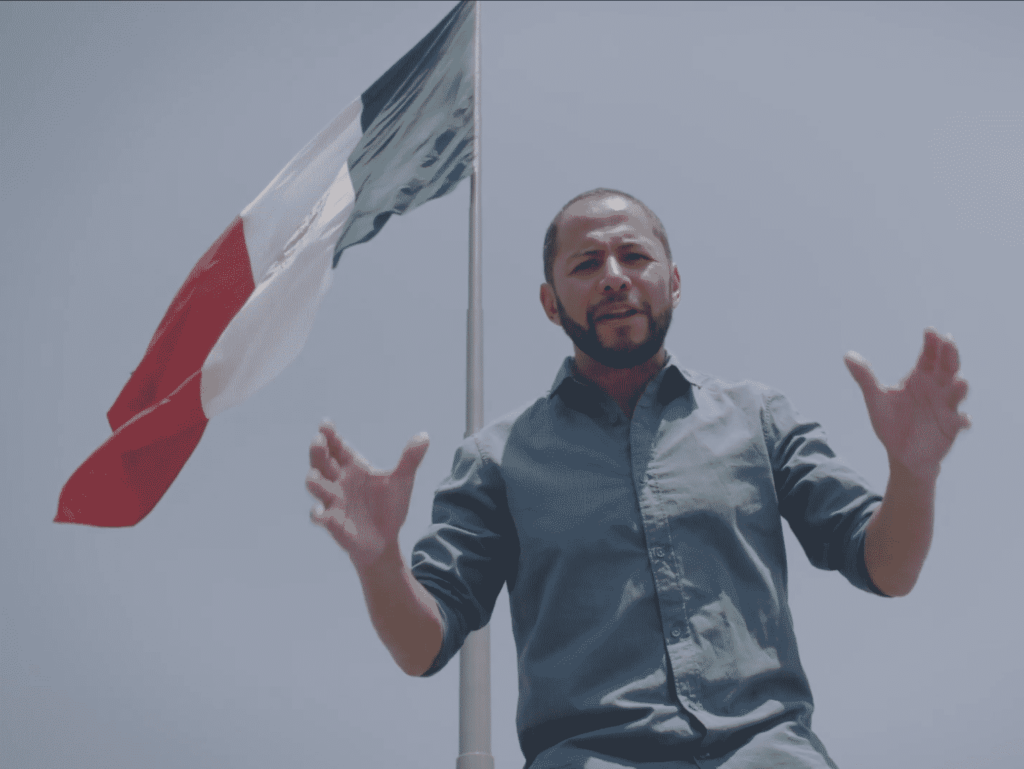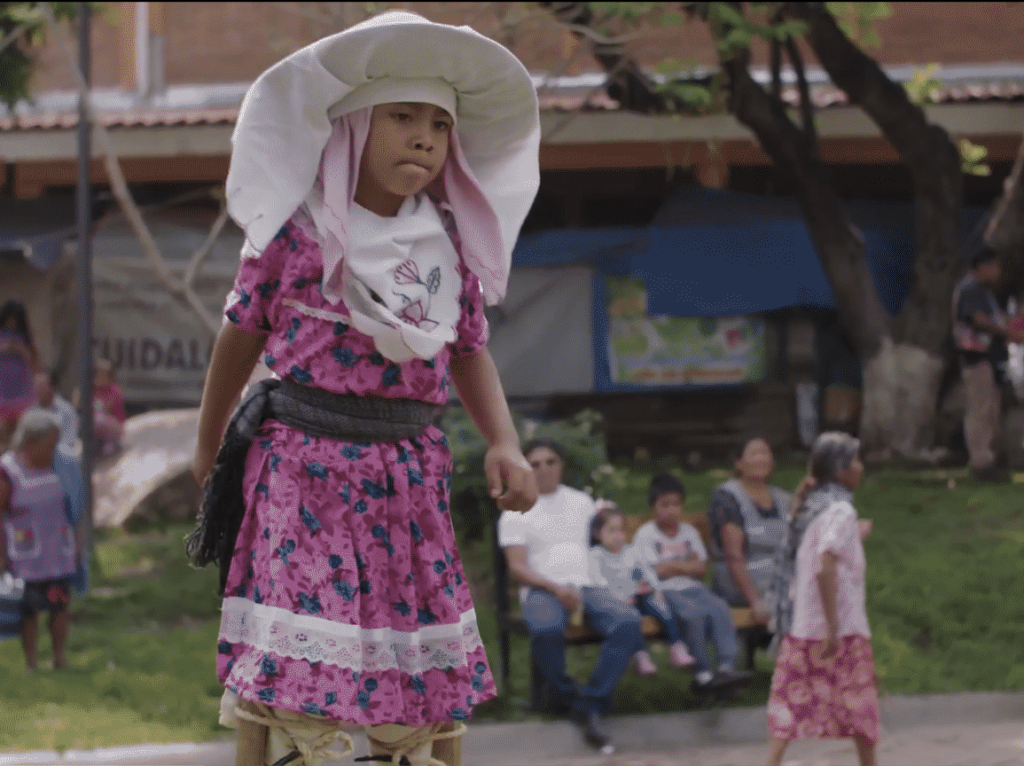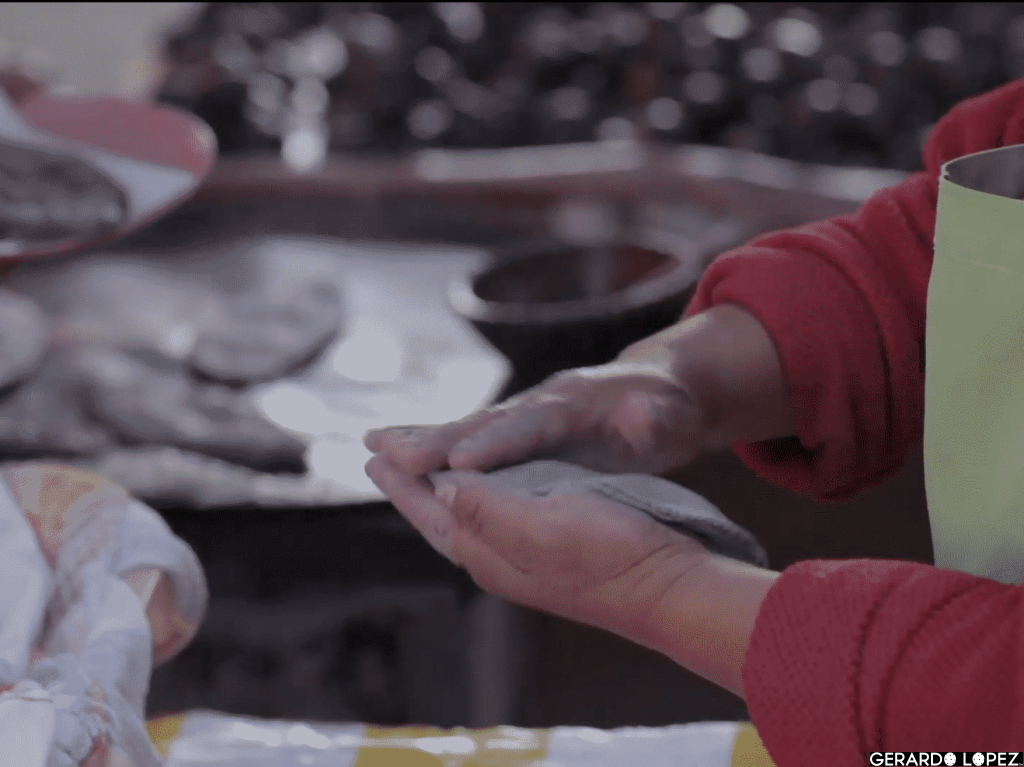Every 1st and 2nd of November, México’s cemeteries transform into street parties. Over two days, Mexicans celebrate death with traditional food, drinks, and music.
On the 1st of November, we celebrate any children that died at a young age, and on the 2nd of November all the adults. Actually, the celebrations begin the night before when the cemeteries and homes are lit with innumerable candles so our loved ones can find their way back home through the darkness of the night.
There are no sad faces, it is a joyful time to remember our loved ones and honour their life. We will prepare the foods and drinks they enjoyed and played the music they danced with us.
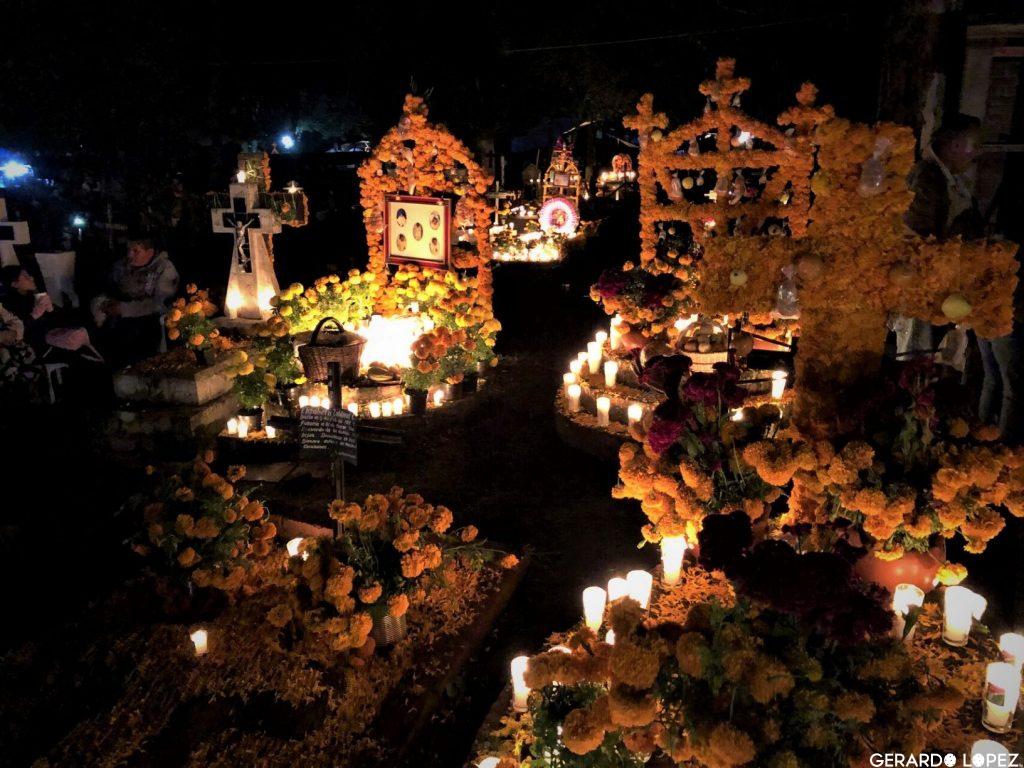
Cementary decorated for Day of the Dead in Michoacan
My fondest memory of celebrating Day of the Dead in México must be accompanying my mother to the market to buy the traditional – and delicious – skulls. The skulls are made of sugar, chocolate, or a combination of both and on the forehead, they have names. It was so much fun trying to find the skull with the name of your family members, friends, and of course mine name – Gerardo. Equally exciting was to receive a skull with your name from loved ones – they have remembered you!
And to me, that is the core of Day of the Dead celebration – remembering those we love, especially those that have left this life ahead of us. There is an astute and popular saying in Mexico that sums it up well:
The only antidote to death is memory
To Mexicans, a loved one that has died remains ‘alive’ as long as her/him stays in the memories of those of us alive.
Most households will build an altar to honour those that have left us. And the altar is just the start, there are all skulls from the market with the names of loved ones, the favourite drinks of the deceased, and of course their favourite food!! Mole is one of the most typical dishes, who doesn’t like mole?
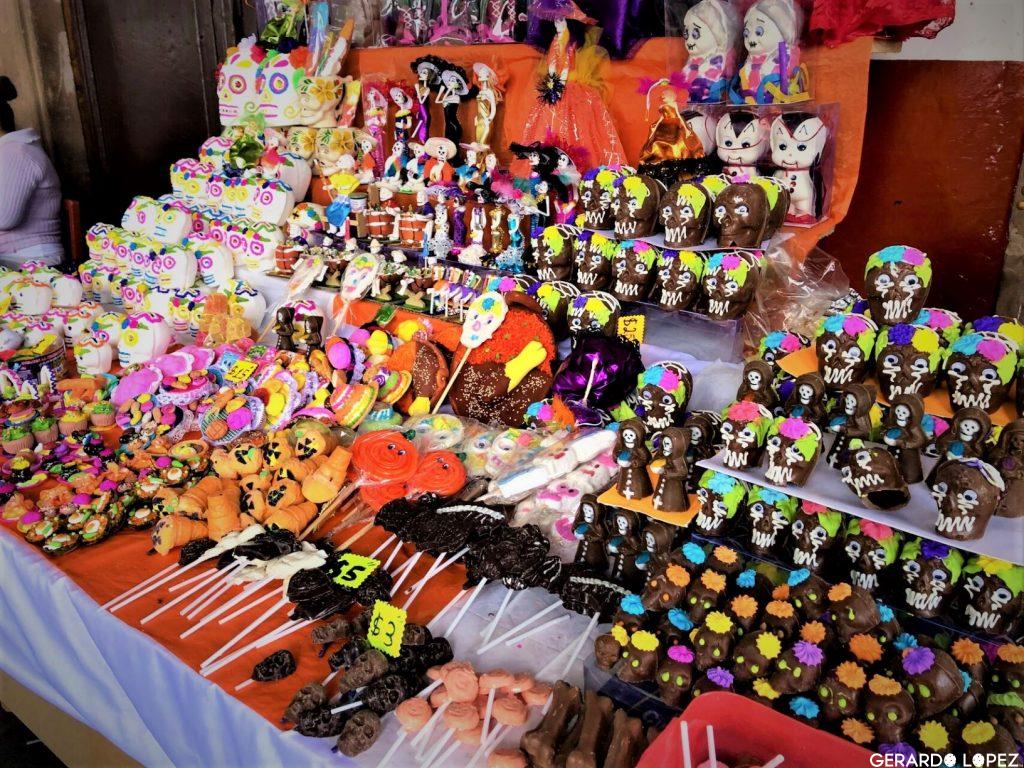
Day of the Dead Sugar and Chocolate Skulls
There is also music and the traditional ‘pan de muerto’, made of flour and lots of sugar with crusts on the top that represent human bones. According to the legend, ‘bread of the dead’ was invented by Spaniards to replace the indigenous Mexican offerings of human hearts made to their gods. To me, the bread symbolises a fraternal offering to all the souls.
Now we just need to wait for the night to fall on the 1st of November to kick-off the party. And like most celebrations in México, this is an unforgettable one.
We, Mexicans, face death with laughter and happiness. We sing and dance with the skeletons and skulls during the celebrations of Day of the Dead. We celebrate death in life. Day of the Dead celebrations are to be memorable, so we all continue to live for many and many more generations.
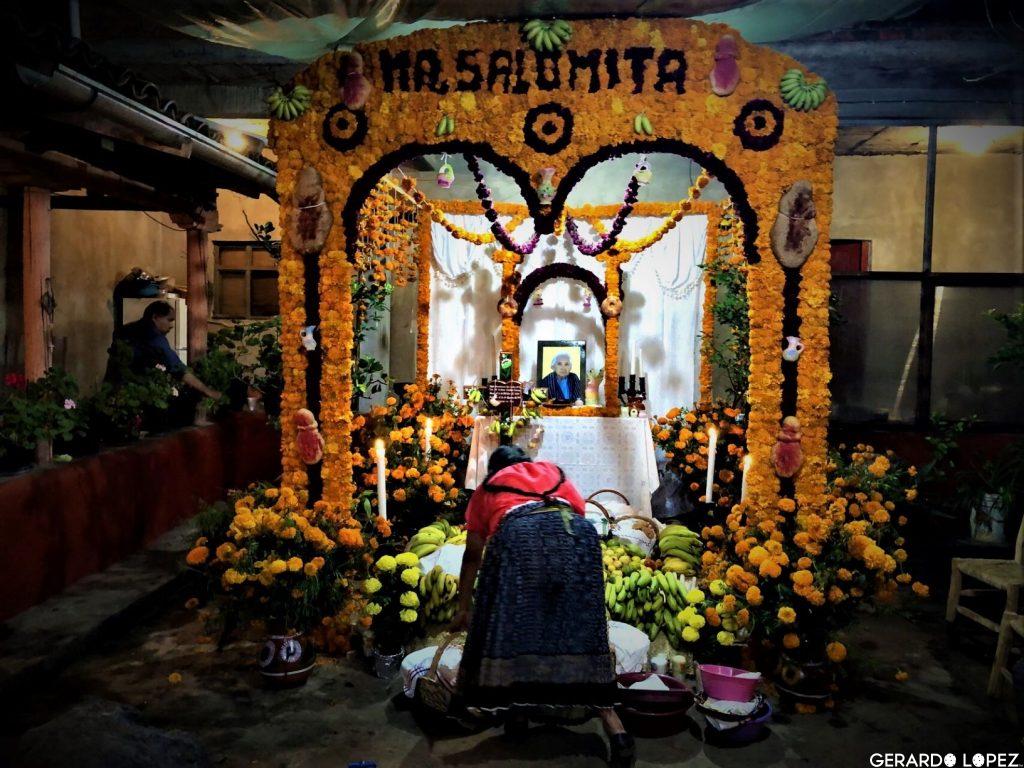
Day of the Dead – home altar in Michoacan
In Australia, I continue to celebrate this tradition that not only allows me to honour my grandma but also connects me back to my family back in Mexico.

